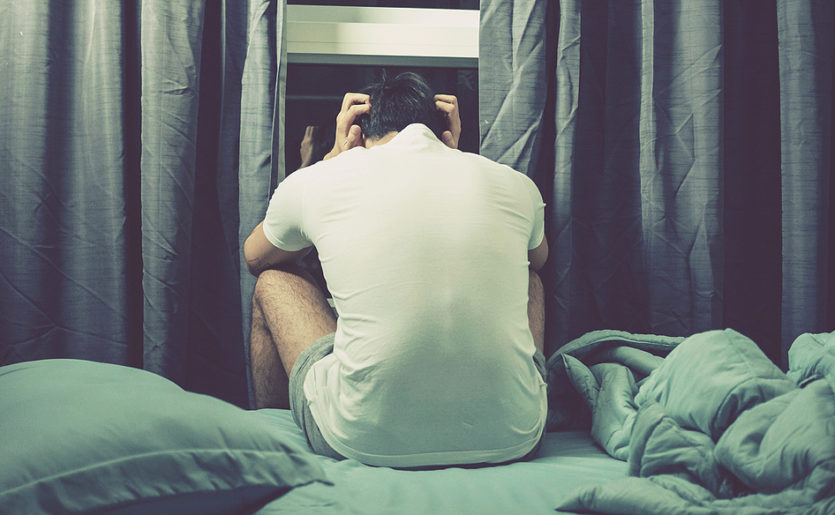Edward F. Pace-Schott, PhD, is an investigator in the Sleep and Anxiety Disorders Laboratory at Massachusetts General Hospital. He studies the relationship between sleep and anxiety using sleep recordings, brain imaging and physiological measurements.
Dr. Pace-Schott recently presented at SLEEP 2018, the annual scientific and clinical meeting for sleep medicine physicians, and sleep and circadian researchers.

We asked him to discuss his research:
Anxious people often don’t sleep well and poor sleep is a symptom of many psychiatric disorders, including anxiety.
However, poor sleep itself may lead to anxiety disorders — studies show that sometimes sleep problems begin before a person develops severe anxiety symptoms.
Why might this be the case?
Regulating Fears and Anxieties
There are two important methods that we use to regulate our everyday fears and anxieties — fear extinction and habituation.
In extinction, we learn a new memory that indicates that something we once feared no longer needs to be feared. The newly formed memory doesn’t erase the old fear memory; rather it coexists with and inhibits the fear associated with the old memory. For example, if one was in a minor auto accident on a particular street, driving there again and recalling the accident might cause anxiety for a time. However, after many trips down that street without an accident, one no longer experiences anxiety.
In habituation, we become accustomed to things that once were anxiety provoking through repeated exposure. For example, we may be scared of flying the first time we fly in an airplane, but if we fly often, flying often becomes routine and innocuous.
Extinction and habituation are learned and, like all types of learning, they must first be strengthened (consolidated) in the brain in order to become an enduring memory.
A major function of sleep is to strengthen memories by facilitating memory consolidation.
Strategically Timed Sleep
A major function of sleep is to strengthen memories by facilitating memory consolidation. Therefore, if our sleep is disrupted or insufficient, the extinction and habituation memories we have formed may not be sufficiently strengthened to effectively compete with our fear memories, and anxiety may abnormally persist.
Exposure therapy is the gold standard treatment for anxiety-related disorders such as post-traumatic stress disorder or social anxiety. In such therapy, a patient is exposed to situations or reminders of situations that elicit the specific fear being treated and therapeutic extinction memories are formed.
However, such memories must persist for treatment to be successful. Therefore, we are studying whether strategically timed periods of sleep – either overnight or as naps – might improve the treatment results of individuals receiving exposure therapy for an anxiety disorder.
This story first appeared on the Mass General Research Institute blog.
The Research Institute: Saving Lives Through Science
 The Massachusetts General Hospital Research Institute is the largest hospital-based research program in the United States, with a community of more than 8,500 people working across more than 30 institutes, centers and departments.
The Massachusetts General Hospital Research Institute is the largest hospital-based research program in the United States, with a community of more than 8,500 people working across more than 30 institutes, centers and departments.
Our researchers work side-by-side with physicians to pioneer the latest scientific advancements for curing disease and healing patients in Boston, across the United States and around the world.
To learn more about the Research Institute, please visit our website.






